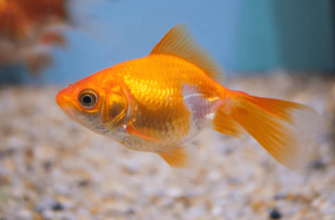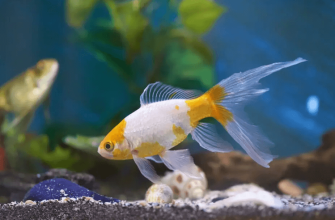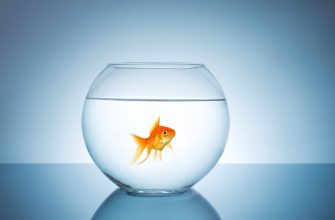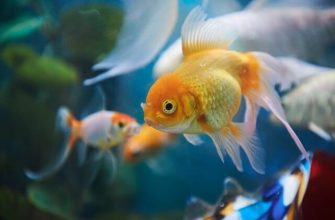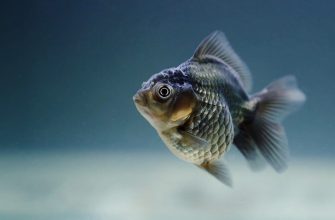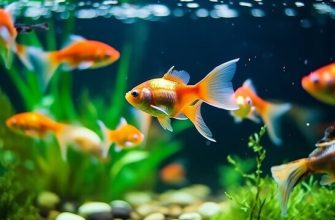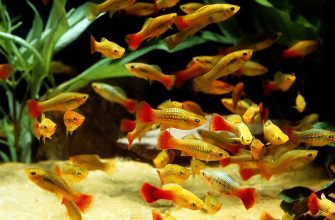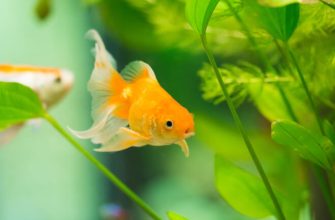Goldfish are fascinating creatures that capture our attention with their vibrant colors and graceful movements. As we observe them gliding through their aquatic environment, many of us start to wonder: Do goldfish sleep?
Surprisingly, the answer isn’t as straightforward as one might think. Let’s embark on a journey to uncover the mystery of goldfish rest and sleep.
Do Fish Sleep?
Fish do exhibit sleep states, though not in the same way as humans. Research shows that fish have periods of inactivity and reduced awareness that resemble sleep.
Some behaviors indicate fish are sleeping:
- Becoming motionless and settling on the aquarium floor or floating in place
- Reduced reaction to stimuli
- Lowered breathing and metabolic rates
- Closing or covering their eyes
Fish likely have circadian rhythms controlling sleep-wake cycles. Their activity levels rise and fall at regular intervals over a 24-hour period. Light levels influence their circadian clock, with darkness triggering increased melatonin production and sleep.
Goldfish Sleep Patterns
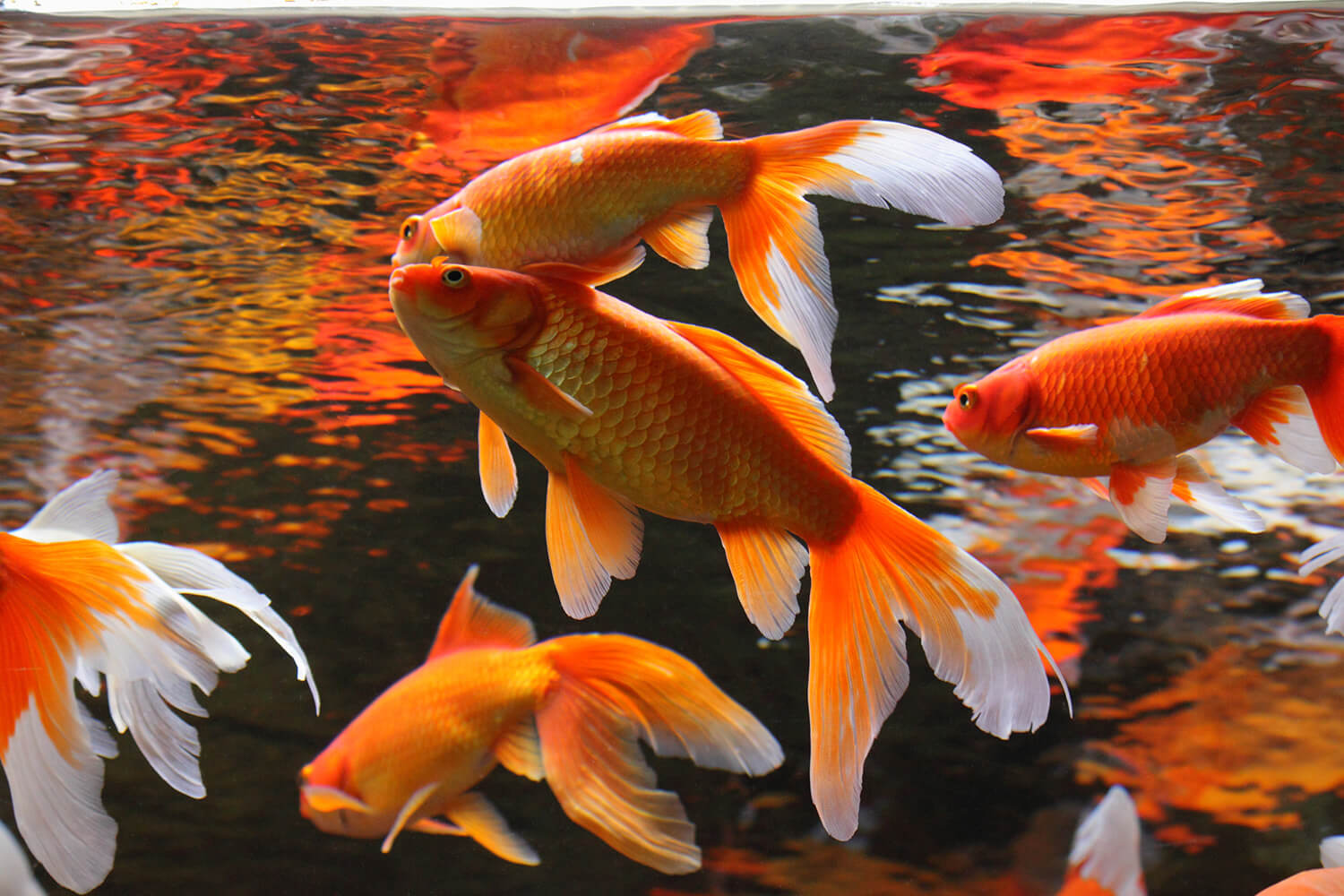
Goldfish do not sleep like humans, but they do rest. When sleeping, goldfish remain still in one spot, move slowly, or lay on the bottom of the tank. Their metabolism and activity slows down as they enter a restful state.
Goldfish tend to be most active during the day. At night, they sleep in intervals of several hours at a time. Their sleep cycle consists of periods of sleep mixed with brief moments of waking activity throughout the night.
Several factors affect goldfish sleep patterns. Goldfish prefer sleeping when it’s dark and quiet. Too much light or noise can disrupt their sleep. Water temperature also impacts sleep – cooler temperatures lead to longer sleep periods. Overall tank conditions like water quality, nutrition, and health influence sleep as well. Stressed or sick fish may have irregular sleep.
How to Tell if Your Goldfish is Sleeping
Goldfish exhibit several physical signs and behavior changes when they are sleeping.
Some common ways to tell if your goldfish is sleeping include:
- Physical signs
- Remaining still in one spot or floating motionlessly
- Slowing or stopping of gill movement
- Closing their eyes fully or partially
- Behavior changes
- Going to a sheltered area or bottom of tank
- Reduced reaction to stimuli or food
- Sleeping positions
- Hovering motionless in one spot mid-water column
- Resting on bottom of tank or decorations
- Tilting sideways or vertically while remaining still
If your goldfish is displaying these signs, it is likely resting or sleeping. Make sure not to startle or wake a sleeping goldfish. Pay attention to its normal sleep patterns so any changes can signify potential health issues. Overall, a sleeping goldfish is a healthy, happy goldfish!
Ideal Sleep Conditions for Goldfish
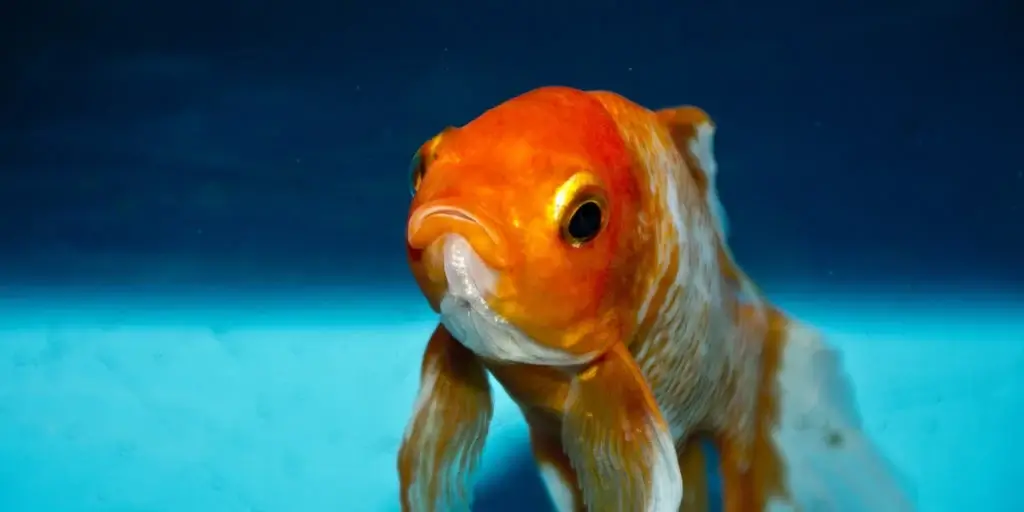
Goldfish require certain tank conditions to get their best sleep and stay healthy. The tank setup is crucial for promoting proper goldfish sleep.
Here are some key recommendations:
-
Tank size – Goldfish need a spacious tank to swim and sleep comfortably. The minimum recommended size is 20 gallons for a single fancy goldfish, and an additional 10 gallons per extra goldfish.
-
Substrate – Smooth gravel or sand substrates are best, as rough gravel can damage goldfish 2. The substrate should be free of sharp edges. Bare-bottom tanks also work.
-
Plants – Adding live or silk plants provides enrichment, hiding spots to sleep, and absorbs nitrates. Anacharis, java fern, and java moss are great options. Avoid sharp plastic decor.
-
Lighting – Goldfish benefit from a consistent daylight cycle. Using an automatic timer for the lights allows approximately 10 hours of daylight and 14 hours of darkness. This mimics natural day/night rhythms.
-
Filtration – Strong filtration keeps water clean and oxygenated. Goldfish are messy fish and produce lots of waste. Over-filtering the tank size is recommended for healthy water quality.
Providing goldfish with a properly sized and decorated tank, with smooth substrate, live plants, proper lighting, and strong filtration allows them to sleep soundly and thrive. Monitoring water conditions closely is also key. With good habitat, goldfish can sleep deeply and wake refreshed.
Goldfish Sleep Issues
Goldfish can experience a variety of sleep disturbances and issues that affect their health and wellbeing.
Some of the most common sleep problems seen in goldfish include:
-
Swim bladder disorder – Also known as swim bladder disease, this is one of the most prevalent sleep issues in goldfish. It causes fish to have difficulty regulating their buoyancy, leading them to either float upside down at the surface or sink to the bottom of the tank. Swim bladder disorder can be caused by bacterial infections, constipation, poor water quality, and rapid changes in water temperature or chemistry.
-
Restlessness – Some goldfish may have difficulty falling asleep or staying asleep, swimming around the tank aimlessly. This restless behavior is often a sign of stress or discomfort from environmental factors like bright lights, noise, unsuitable water parameters, or aggression from tankmates.
-
Lethargy – While some goldfish become restless when unable to sleep, others will become extremely inactive and lethargic. Lethargic fish may lie motionless on the bottom of the tank for prolonged periods. This can result from illness, poor water quality, or simply old age in elderly fish.
To address sleep problems in goldfish, start by testing and optimizing water parameters. Provide dark, quiet periods for uninterrupted sleep. Treat any underlying infections or parasites. In some cases medications or dietary supplements may help as well. Preventing and alleviating sources of stress is key for maintaining healthy sleep patterns. With proper care, most goldfish sleep disturbances can be resolved.
Improving Goldfish Sleep
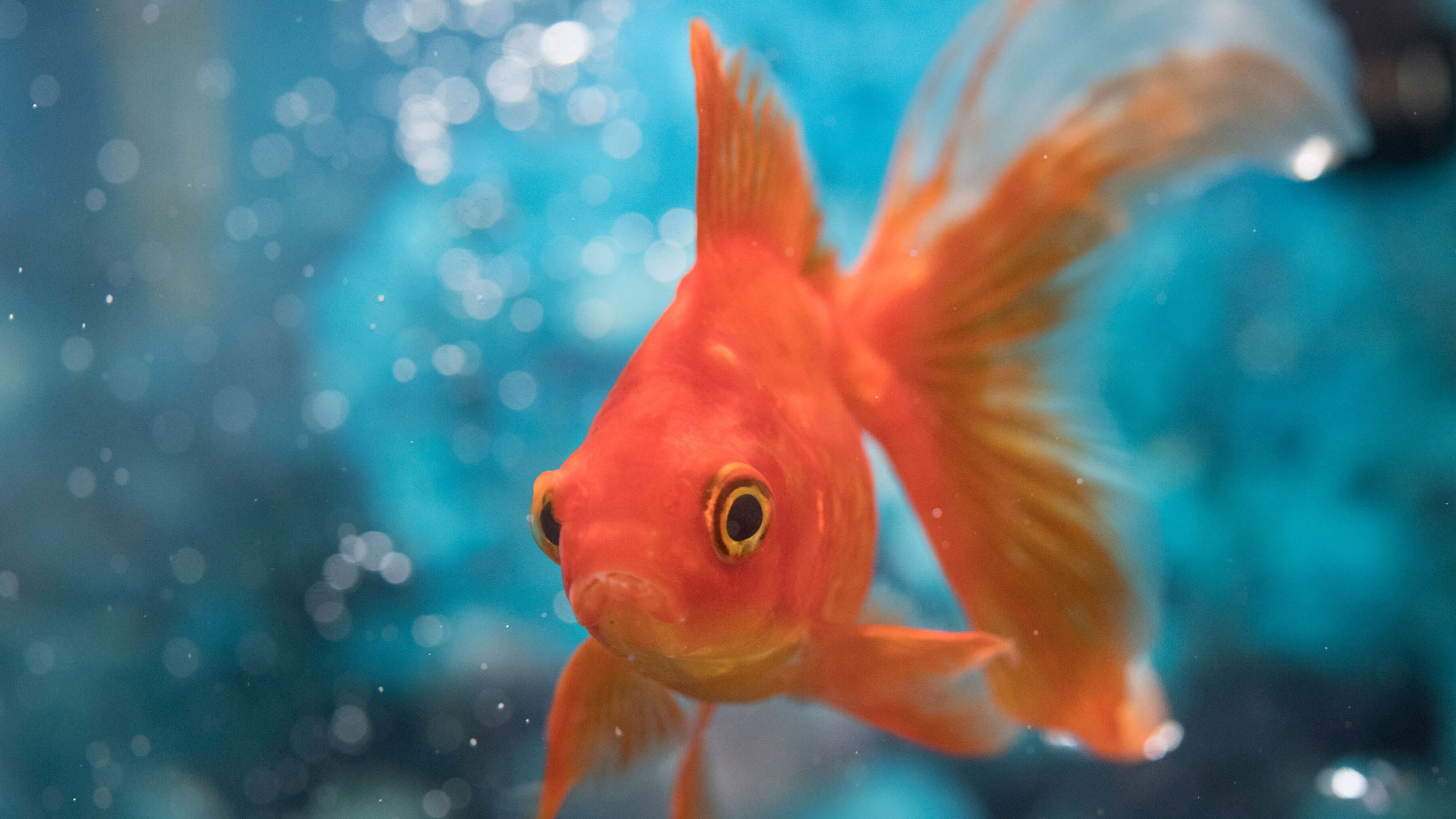
Goldfish require adequate sleep for proper development, growth, and health.
There are several tips for improving your goldfish’s sleep:
-
Maintain proper water parameters like temperature, pH, and ammonia levels. Goldfish do best in water between 65-75°F. Fluctuating water chemistry can disrupt sleep.
-
Provide a quiet, dark sleeping environment. Turn off aquarium lights completely at night and avoid loud noises or vibrations near the tank. Floating plants can provide shade.
-
Establish a consistent day/night light cycle with 8-12 hours of darkness. An automatic timer can help regulate the light schedule.
-
Reduce stressors like overcrowding, aggression from tankmates, or frequent handling. A stressed goldfish will have irregular sleep.
-
Offer places for the fish to rest like plants, rocks, driftwood, and caves. Most goldfish sleep at the bottom of the tank.
-
Consider supplements like melatonin or chamomile extracts to promote sleep. Consult your vet first and follow instructions carefully.
If your goldfish still shows signs of poor sleep like lethargy, lack of appetite, or frayed fins, have your vet examine them. Underlying illness, parasites, or water issues could be affecting sleep. With some adjustments to their environment and care, most goldfish can enjoy healthy, restorative sleep.
Fun Facts About Goldfish Sleep
Goldfish do not have eyelids, so they sleep with their eyes open! This makes it hard to tell if a goldfish is asleep or awake just by looking at it.
Some interesting signs that a goldfish may be sleeping include:
- Floating motionlessly at the top of the tank
- Hovering in one spot without much swimming activity
- Sitting at the bottom of the tank without moving
- Slowing down their breathing rate
One fascinating study found that goldfish actually sleep both at day and at night! Their sleep patterns follow a circadian rhythm just like humans. At night, they experience longer periods of deep sleep. During the day, they have shorter naps.
Goldfish don’t necessarily need special conditions to sleep. They can sleep fine in normal tank conditions as long as the water quality is good. Providing a quiet, dark environment at night can help promote healthy sleep though.
Overall, goldfish have some remarkably similar sleep habits to humans. Learning about how goldfish sleep can help owners better understand their pet’s behavior and make sure their sleep needs are met.
The Importance of Sleep for Goldfish Health
Sleep is crucial for a goldfish’s health and wellbeing. Goldfish that get inadequate sleep can suffer from a range of issues. Lack of sleep impacts a goldfish’s immune system, making it more susceptible to disease. Goldfish that don’t get enough rest will also exhibit signs of stress such as erratic swimming, loss of appetite, and frayed fins.
On the other hand, goldfish that get sufficient sleep enjoy a range of benefits. Sleep allows goldfish to repair tissue damage and recover from any stress or disease. Their metabolism and growth are regulated during sleep as well. Overall, adequate rest results in a healthier immune system and better ability to thrive.
Getting the right amount of quality sleep is just as vital for goldfish as it is for humans. Be sure to provide a peaceful environment and comfortable resting spaces to ensure your goldfish can get the rest they require. Monitoring their sleep patterns and behavior can help identify any underlying issues.
Frequently Asked Questions
Goldfish sleep is a common topic of discussion for goldfish owners.
Here are some of the most frequently asked questions and troubleshooting advice:
Do goldfish sleep with their eyes open?
Yes, goldfish do sleep with their eyes open since they don’t have eyelids. They will often rest motionless at the bottom or middle of the tank when sleeping.
How can you tell if a goldfish is sleeping or dead?
Check for gill movement – a sleeping goldfish’s gills will still be moving as they breathe. A dead goldfish will be completely motionless with no gill movement.
Why does my goldfish sleep at the bottom of the tank?
Goldfish may sleep at the bottom when they feel safest and most secure. Make sure there are plenty of plants and decorations to provide cover. Check water parameters as well – poor water quality can cause lethargy.
My goldfish won’t sleep – what should I do?
Make sure the tank light is off at night and the room is dark and quiet. Reduce stressors like noise, other pets staring at the tank. Check water flow isn’t too strong. Add more plants and decor for comfort and security.
Do goldfish need complete darkness to sleep?
Darkness helps, but some ambient low light is ok. Make sure bright tank lights are off at night and minimize other direct light shining on the tank. Covering 3 sides can help create a “cave” effect.

